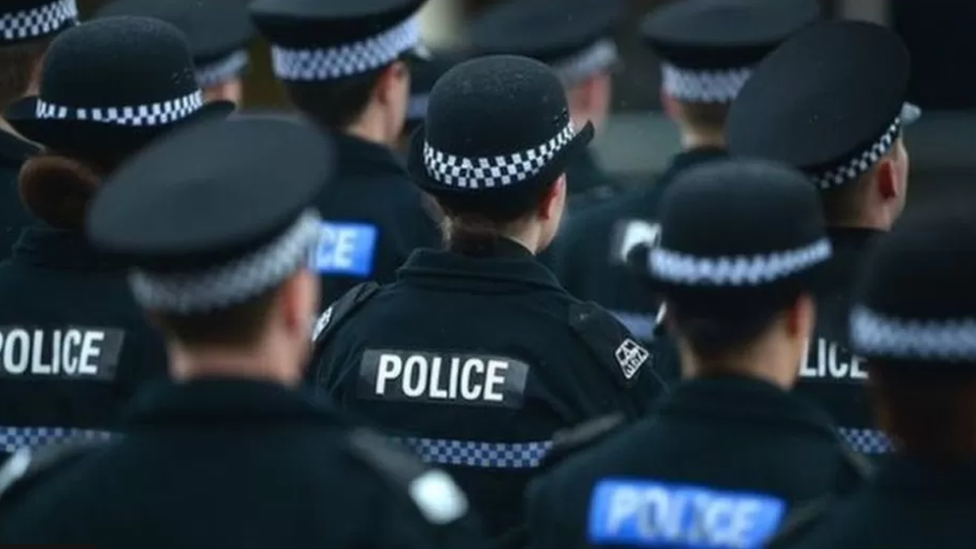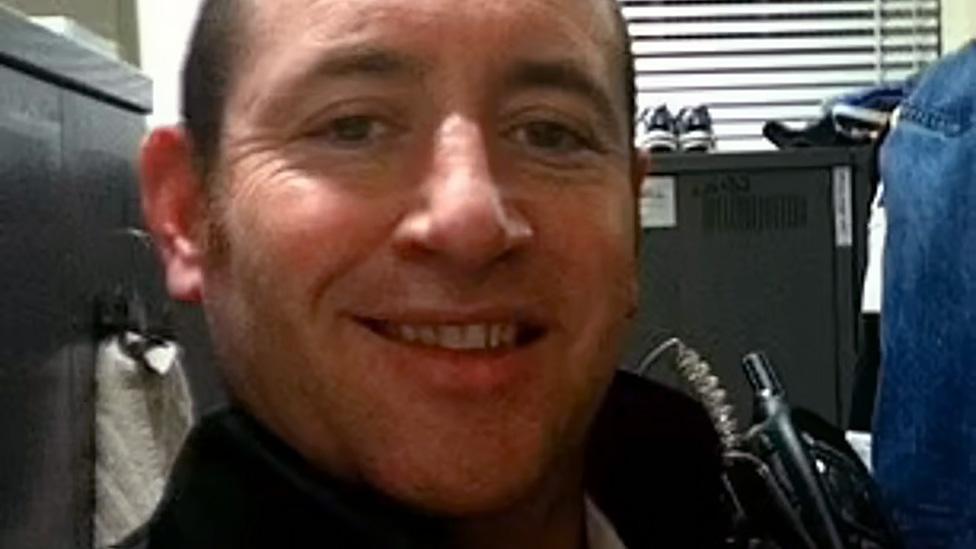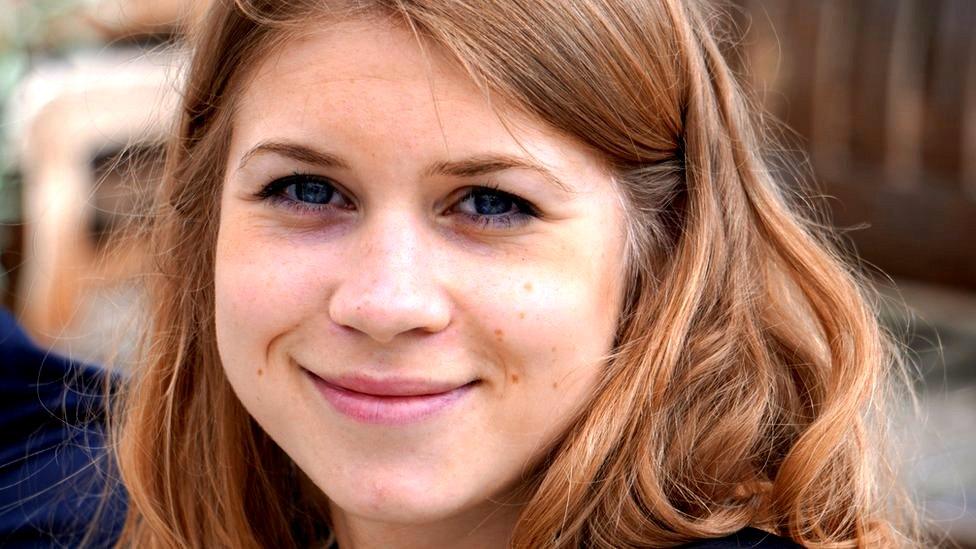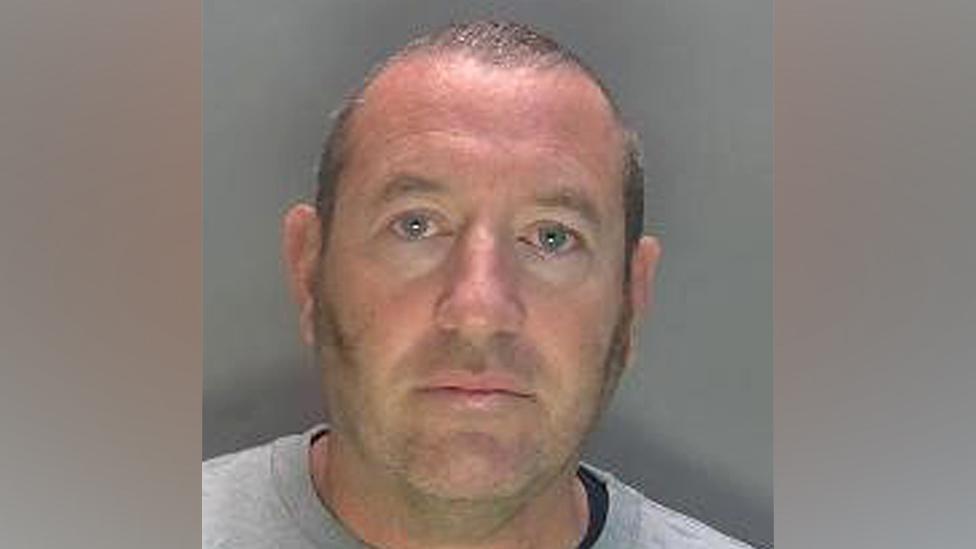Police Scotland would be 'stupid' not to increase vetting, says ex-chief
- Published

Police Scotland could look "stupid" if it does not step up the vetting of its officers, a former chief has said.
Angela Wilson, ex-assistant chief constable of Tayside, also called for an independent body to be set up to look at complaints against officers.
It follows the case of David Carrick who admitted dozens of rape and sexual offences as a Met police officer.
The Home Office has said every force in England would now be asked to check staff against national databases.
Police Scotland said it was "watching developments".
A spokesperson said it would consider further action to "support our drive to maintain the highest standards within Police Scotland".
The force also said it had introduced an additional check for new recruits just before they are sworn into office, and will commence a rolling programme to assure and renew vetting decisions over the coming year.
Ms Wilson, who is now chair of the Women's Rape and Abuse Centre in Dundee, said the Met had been "very slow to react" and said Police Scotland "needs to be getting round the table and doing that scrutiny now".
She told BBC Radio's Good Morning Scotland programme: "They are going to look incredibly neglectful, and indeed stupid, if in the next few weeks a case comes forward in Scotland that they could have picked up on."
She said the force should agree to a common practice with every other UK force which is "all about transparency".

David Carrick admitted dozens of rape and sexual offences as a Met Police officer
Carrick, 48, was officially sacked on Tuesday after he pleaded guilty to 49 offences against 12 women over two decades.
Prime Minister Rishi Sunak said his crimes were an "absolutely despicable" abuse of power which needed to be "addressed immediately".
The National Police Chiefs Council (NPCC) will ask forces in England to check current staff recruited before tougher vetting of recruits was introduced in 2006.
The College of Policing will also be asked to strengthen vetting procedures.
Ms Wilson added: "I'm pleased to hear that vetting has been improved ... but what about officers who came in with lesser vetting over the last few years?
"There needs to be a body that is led by someone from the senior legal profession, with experienced investigators, to do a check on how these investigations are being conducted."
Professional standards
The head of the watchdog overseeing Police Scotland said he would be "very surprised" if the force had rogue officers like Carrick among its ranks.
The Chief Inspector of Constabulary in Scotland, Craig Naylor, said his assessment was based on Police Scotland's vetting procedures and professional standards.
He said: "All those who abuse their power as a police officer to commit crime are abhorrent and should be investigated and prosecuted to the limits of the law.
"This is a difficult task to undertake and many of those who commit crime while serving as a police officer do so in private and maintain a secrecy in their actions."


When Craig Naylor became Scotland's Chief Inspector of Constabulary, a newspaper described him as "a Scottish FBI-trained supercop."
The former deputy chief constable leads the organisation which scrutinises Scotland's national force.
It is therefore reassuring that someone with his experience has felt able to stick his neck out and publicly express confidence in Police Scotland's procedures.
Having said that, his Inspectorate was already planning to examine the way the force checks new recruits and serving officers and staff.
Police Scotland's new intelligence-led approach to vetting was one of several changes introduced in recent years.
In 2018, the Scottish government asked former law officer Dame Elish Angiolini to look at the force's handling of complaints.
Her 490-page report contained dozens of recommendations of which 55 have been implemented, with work on going.
In 2021, after the murder of Sarah Everard, Police Scotland reviewed its approach to complaints that had a sexual element.
It dealt with 410 such cases over roughly a five year period to October 2021. Of those, 118 involved criminality and 44 officers resigned and retired, although it's not known how many were taken to court.
Police Scotland said it didn't find any significant issues with the way it had investigated the complaints.

Police Scotland is not bound by College of Policing guidance, but it said it was "right that policing is held to high standards".
Deputy Chief Constable Fiona Taylor said: "Our officers work day in, day out, right across Scotland to protect the vulnerable and keep people safe.
"The onus is on policing to build and maintain the public confidence and consent which is critical to our legitimacy and for our ability to keep our communities and citizens safe.
"We are resolute in our determination to do so, including addressing sexism, misogyny and violence against women, within our organisation and across society."
She added: "In October 2021, we undertook a review of all complaints and conduct matters which contain sexual circumstances between 1 January 2017 and 21 October 2021 which were reported to or within Police Scotland.
"We reported our findings to the SPA in May 2022 and, although no significant issues were identified around the quality of investigations assessed, the review contributed to organisational learning".

Police Scotland announced a new strategy following events such as the murder of Sarah Everard
Last year, serving police officer Ross Campbell was convicted of sexually assaulting female colleagues on work nights out in Aberdeen and Dundee.
It also emerged more than 100 Police Scotland officers were investigated in the previous four years over sexual misconduct claims.
Police Scotland went on to announce it was developing a new strategy to tackle violence against women and girls following events such as the murder of Sarah Everard.
The initiative came as figures revealed the number of reported sexual crimes across Scotland increased by more than 13% in 2021.
Chief Constable Sir Iain Livingstone had previously ordered an independent review into a tribunal which found evidence of a "sexist culture" in its armed policing.
Former firearms officer Rhona Malone raised the tribunal against Police Scotland alleging sex discrimination and victimisation.
Her victimisation claims succeeded but the discrimination claim was dismissed.
Related topics
- Published18 January 2023

- Published16 January 2023
